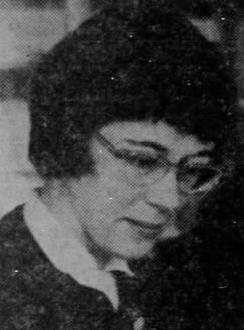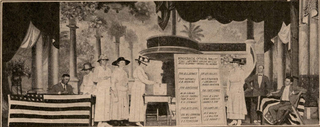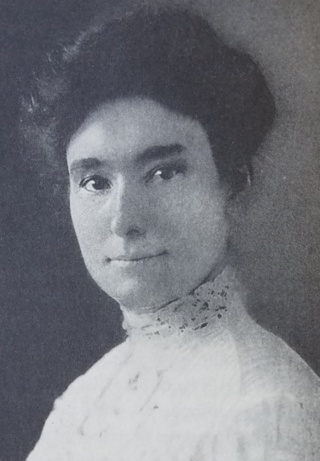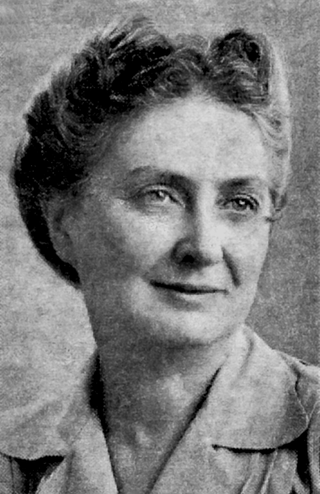
Starkville is a city in, and the county seat of, Oktibbeha County, Mississippi, United States. Mississippi State University is a land-grant institution and is located partially in Starkville but primarily in an adjacent unincorporated area designated by the United States Census Bureau as Mississippi State, Mississippi. The population was 25,653 in 2019. Starkville is the most populous city of the Golden Triangle region of Mississippi. The Starkville micropolitan statistical area includes all of Oktibbeha County.

The Clarion Ledger is an American daily newspaper in Jackson, Mississippi. It is the second-oldest company in the state of Mississippi, and is one of the few newspapers in the nation that continues to circulate statewide. It is an operating division of Gannett River States Publishing Corporation, owned by Gannett.
The 1984 Mississippi Valley State Delta Devils team represented the Mississippi Valley State University as a member of the Southwestern Athletic Conference (SWAC) during the 1984 NCAA Division I-AA football season. Led by fifth-year head coach Archie Cooley, the Delta Devils played their home games at Magnolia Stadium—now known as Rice–Totten Stadium—in Itta Bena, Mississippi. Mississippi Valley finished the season with an overall record of 9–2 and a mark of 6–1 in conference play, placing second in the SWAC. The team qualified for the NCAA Division I-AA playoffs, losing to Louisiana Tech in the first round. With an offense led by quarterback Willie Totten and wide receiver Jerry Rice, the Delta Devils scored 628 points on the season, averaging more than 57 points per game.
The 1960 Ole Miss Rebels football team represented the University of Mississippi during the 1960 NCAA University Division football season. In their fourteenth season under head coach Johnny Vaught, the Rebels compiled a 10–0–1 record and won their fourth Southeastern Conference (SEC) championship. Their only blemish was a 6–6 tie against LSU. Mississippi was the only major-conference team in the nation that finished the season undefeated on the field.
Arthur Francis Hopkins was a justice of the Supreme Court of Alabama from 1836 to 1837.
The 1975 Mississippi State Bulldogs football team represented Mississippi State University during the 1975 NCAA Division I football season. The Bulldogs finished 6–4–1 on the field. However, the NCAA later forced them to forfeit four of the wins and the tie due to having played an ineligible player.
Starkville Academy (SA) is a private kindergarten through 12th grade school in Starkville, Mississippi, operated by the Oktibbeha Educational Foundation. It was founded in 1969 on property adjacent to Starkville High School as a segregation academy.

Lucy Curtis Turnbull was an American classics scholar, and director of the University of Mississippi Museums from 1983 to 1990.

Women's suffrage in Texas was a long term fight starting in 1868 at the first Texas Constitutional Convention. In both Constitutional Conventions and subsequent legislative sessions, efforts to provide women the right to vote were introduced, only to be defeated. Early Texas suffragists such as Martha Goodwin Tunstall and Mariana Thompson Folsom worked with national suffrage groups in the 1870s and 1880s. It wasn't until 1893 and the creation of the Texas Equal Rights Association (TERA) by Rebecca Henry Hayes of Galveston that Texas had a statewide women's suffrage organization. Members of TERA lobbied politicians and political party conventions on women's suffrage. Due to an eventual lack of interest and funding, TERA was inactive by 1898. In 1903, women's suffrage organizing was revived by Annette Finnigan and her sisters. These women created the Texas Equal Suffrage Association (TESA) in Houston in 1903. TESA sponsored women's suffrage speakers and testified on women's suffrage in front of the Texas Legislature. In 1908 and 1912, speaking tours by Anna Howard Shaw helped further renew interest in women's suffrage in Texas. TESA grew in size and suffragists organized more public events, including Suffrage Day at the Texas State Fair. By 1915, more and more women in Texas were supporting women's suffrage. The Texas Federation of Women's Clubs officially supported women's suffrage in 1915. Also that year, anti-suffrage opponents started to speak out against women's suffrage and in 1916, organized the Texas Association Opposed to Woman Suffrage (TAOWS). TESA, under the political leadership of Minnie Fisher Cunningham and with the support of Governor William P. Hobby, suffragists began to make further gains in achieving their goals. In 1918, women achieved the right to vote in Texas primary elections. During the registration drive, 386,000 Texas women signed up during a 17-day period. An attempt to modify the Texas Constitution by voter referendum failed in May 1919, but in June 1919, the United States Congress passed the Nineteenth Amendment. Texas became the ninth state and the first Southern state to ratify the Nineteenth Amendment on June 28, 1919. This allowed white women to vote, but African American women still had trouble voting, with many turned away, depending on their communities. In 1923, Texas created white primaries, excluding all Black people from voting in the primary elections. The white primaries were overturned in 1944 and in 1964, Texas's poll tax was abolished. In 1965, the Voting Rights Act was passed, promising that all people in Texas had the right to vote, regardless of race or gender.

Pauline Van de Graaff Orr was an American educator and suffragist based in Mississippi.

Debbie Brock is an American former collegiate basketball player. During her tenure at Delta State University under coach Margaret Wade, she led the Lady Statesmen to three straight AIAW national titles while maintaining a 120–9 record.

Nellah Izora Massey Bailey was an American politician and librarian. She was the first lady of Mississippi from 1944 to 1946 and the Mississippi state tax collector from 1948 to 1956. A member of the Democratic Party, she was the first woman elected to statewide office in Mississippi.
Dorothy Faye Murphy is an American former basketball player and coach, and current junior college football assistant coach for Hinds Community College. She became the first female football coach in National Junior College Athletic Association history when she was hired to coach wide receivers at Hinds in 1984.

Lovie Landrum Gore was an American politician who served as a member of the Mississippi House of Representatives between 1952 and 1960. She was the Democratic national committeewoman for the state of Mississippi between 1956 and 1960. Gore was a vocal opponent of the civil rights movement, attempting to delay school integration in Mississippi and criticizing desegregation efforts from the national Democratic party.
The 1935 Mississippi State Teachers Yellow Jackets football team was an American football team that represented the Mississippi State Teachers College as a member of the Southern Intercollegiate Athletic Association during the 1935 college football season. In their fifth year under head coach Pooley Hubert, the team compiled a 6–4 record.

Nannie Webb Curtis was an American lecturer and temperance activist, widely-known as a clubwoman. She wrote essays on the topic and edited a magazine. She served as National vice-president of Woman's Christian Temperance Union (WCTU), sat on the National Executive Committee, and was also on the Official Board of the National WCTU, the lawmaking body of organization. Her father having been a Methoidist minister, she made her living lecturing as a pulpit orator on the topics of prohibition and woman suffrage on behalf of the National WCTU, Chautauqua, and the lyceum circuits. Frequently characterized as being "bigger than her state", Curtis was a patriot and a speaker of national fame.

Lillian GonzalesKohlhamer, also known as Lillian Gottlieb Kohlhamer, was an American suffragist and peace activist, based in Chicago. She was one of the American delegates to the International Congress of Women held in The Hague in 1915, and at the International Woman Suffrage Alliance conference in Geneva in 1920.

Miriam Greene Paslay was an American college professor. She was a professor of Latin and Greek at the Industrial Institute & College in Columbus, Mississippi from 1891 until 1920.

Emma May Laney was an American college professor who taught English at Agnes Scott College in Georgia for 37 years, and friend of poet Robert Frost.

Cora Webb Bass Donnelly was an American educator, clubwoman, artist, and personnel director. She was a lieutenant colonel in the Women's Army Corps during World War II.













